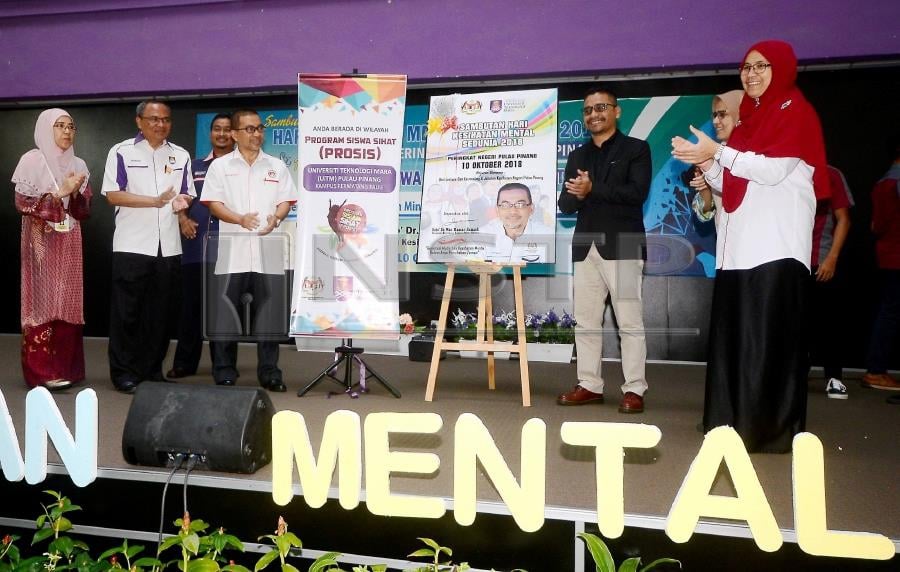BUKIT MERTAJAM: Mental health problem among Penang students is fast becoming a worrying trend, with 18.5 per cent said to be suffering from depression.
State Health Department director Datuk Dr Wan Mansor Hamzah said this was the finding of the National Youth Health Survey 2017.
He, however, said that the situation was under control, but stressed on the need to take necessary action to help the students.
“Mental health problem is quite serious and must be tackled because it not only affects an individual but also the community at large.
“Imagine, 9.5 per cent of secondary school students admitted of plans to commit suicide while six per cent tried to do so,” he said when met at the Mental Health Day and launching of Healthy Students Programme at Universiti Teknologi Mara (UiTM) here today.
Dr Wan Mansor said there were numerous factors which affected the youth’s emotions, leading them to be involved in unhealthy activities, including addiction to internet.
“The internet addiction can influence their emotions to commit crime such as cyber bullying and others. If this is not contained, it will lead to an unhealthy environment for them,” he said.
He also advised parents to come forward to seek specialists’ assistance if they find that their child has symptoms of depression.
On a separate matter, Dr Wan Mansor advised the public to carefully read the ingredients of food items bought to identify the level of sodium and sugar, which can lead to serious ailments.
He was commenting on the revelation made by the Consumers Association of Penang (CAP) yesterday that papadom was dangerously overloaded with sodium.
In a laboratory test conducted by CAP on 11 samples of papadom, CAP president S.M. Mohamed Idris had claimed that all the samples tested contained more than 1,000mg/100gm of sodium, and four samples contained more than 2,000mg/100gm of sodium.
“The issue of food safety cannot be taken lightly, especially if consuming salt and sugar excessively can lead to high blood pressure, diabetes and more.
“This is the case not only in Penang but all around the world,” he said.
Meanwhile, papadom lovers are calling for the manufacturers to find alternatives to replace the sodium in producing it.
Irlonna Nassitia Ibrahim, 24, said that ‘stevia’ had replaced sugar in food and the manufacturers may be able to find substitutes which could replace sodium.
“Anchovies can give the needed salty taste without the addition of any sodium, maybe they can look at such alternatives to be placed in the papadom,” he said.
Restaurant operator, who only wanted to be known as Abdullah, 43, said that banning of papadom was not a right move and proposed for the ingredients to be altered.
The demand was normal at the restaurant even though his customers were talking about the papadom fiasco.
“I was told about this by my own customers. We accept the outcome of the research done but we cannot stop people from buying it. Taking care of health is their own choice,” he added.


